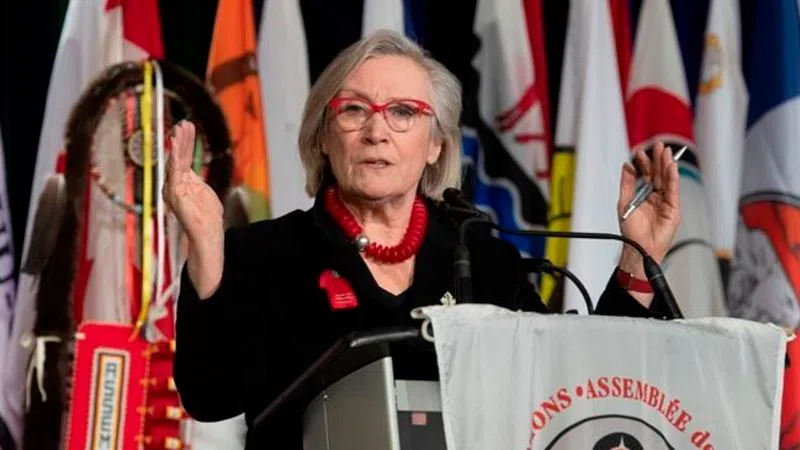
Ottawa’s plan on missing and murdered Indigenous women due by June: Bennett
OTTAWA — The Liberal government will release its national action plan to respond to the National Inquiry into Missing and Murdered Indigenous Women and Girls by June 2020, says Crown-Indigenous Relations Minister Carolyn Bennett.
This will mean a full year will have passed after the inquiry’s final report was released before the public will get a chance to see Ottawa’s official plan to act on the inquiry’s 231 “calls for justice.”
Speaking to chiefs and delegates at a special meeting of the Assembly of First Nations in Ottawa Wednesday, Bennett said the government has been taking time to consult with Indigenous communities, leaders and organizations to ensure the action plan reflects the views of the people most affected.
“Co-development will be the key to getting this right, but we know that the plan has to be built on the wise practice of Indigenous women, those with lived experience and those with expertise,” she said.



